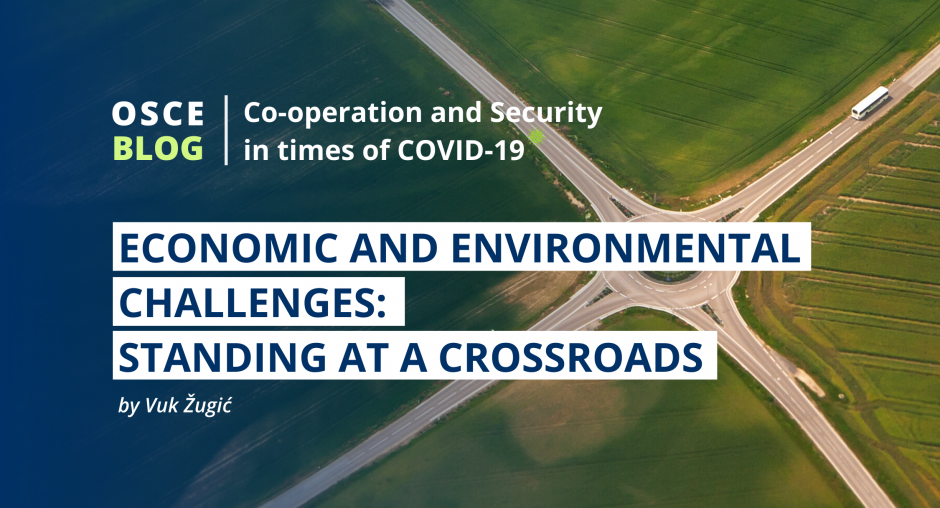OSCE’s take on economic and environmental challenges in times of COVID-19: Standing at a crossroads

Because of the pandemic, the world stands at a crossroads. The increase in global unemployment and the risk of corruption and infiltration by criminal groups in the economy pose a significant threat to sustainable development.
Unlike after wars or armed conflicts, few physical assets will be destroyed when this pandemic is over. However, the fear of an economic depression risks becoming a self-fulfilling prophecy where, because of fear, banks cut lending, businesses cut investments and jobs, and individuals are more reluctant to spend their money. This can lead to a global depression and years of social and economic disruption.
Just as the coronavirus does not stop at borders, neither do economic and environmental challenges. The pandemic has caused large-scale loss of life, severe human suffering and major disruptions to the global economy. It reminds us of how interconnected we truly are.
All sectors have been affected, from public health, the environment, social and governance systems, to the financial and economic sectors.
In today’s interconnected world, it is necessary to have strong solidarity and a co-operative, participatory, and inclusive approach, making it possible to benefit from the contributions of all stakeholders. Such an approach will be conducive as well to restoring confidence and building trust, which is now crucial. Harnessing the growth potential of an inclusive, resilient and resource-efficient economy, in order to be better at handling future shocks, is necessary.
When it comes to the environment, it is true that we are observing some positive effects of COVID 19 crisis, like improvements in air quality, or reductions in the greenhouse gas emissions. But these are likely to be valid only for the short term. Once the economy begins to restore, these gains will probably be lost quickly and even a sudden rise in pollution and emissions could be expected due to a boost in industrial operations similar to the aftermath of the 2008/2009 financial crisis.
However, one thing that we can confidently say is that this pandemic reminds us how fragile our economy is in the way we live today. Therefore, it is important for us to keep environmental issues as well as climate resilience high on our agenda.
In this regard, a careful screening of the environmental impacts of stimulus measures would significantly add coherence to policies; avoiding the creation of unintended environmental consequences that might damage the future resilience and environmental health of societies.
Today, more than ever, we see the importance of strengthening multilateralism and international co-operation, as the most effective way to emerge from the pandemic even stronger than before, and the best defence against any future global threats. Global challenges could be addressed and overcome collectively.
The OSCE, with its comprehensive approach to security, and the Economic and Environmental Dimension with its focus on addressing economic and environmental challenges to security, is well positioned to provide a platform for facilitating dialogue, sharing lessons learned, leveraging partnerships and supporting co-operation.

